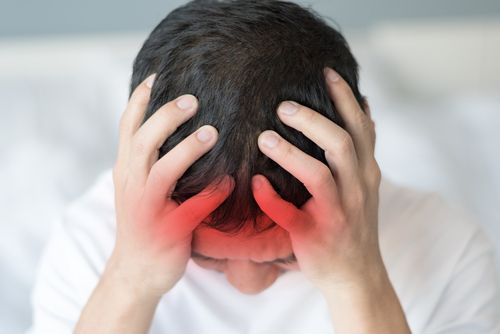
Staying Alert for Second Impact Syndrome
Staying alert for a student with a concussion is something that every coach should do. That is why CHSSA rules and last winter’s CHSSA SMAC Alert advise coaches and others tasked with managing high school sports teams to undergo specialized training to protect players from concussions and other Traumatic Brain Injuries (TBI). This is crucial because students who suffer second concussions or Second Impact Syndrome (SIS) can face permanent disability or death.
Understanding Second Impact Syndrome (SIS)
SIS involves rapid swelling of the brain. It can occur when a player suffers a second concussion before the effects of an earlier concussion have healed. While it is believed to be rare, it is usually fatal, and the handful who survive are often left with permanent injuries. The severe risk is why it is imperative for coaches, officials, athletic trainers, and licensed practitioners to properly monitor players for concussions and to restrict them from playing until their health returns.
Moments matter when second concussions occur. It is not uncommon for players to “feel fine” and even complete entire games as their brain’s swelling progresses. However, the student’s health can rapidly decline, and they may lose consciousness, lose control over eye movement, or have dilated pupils.
These symptoms are typically followed by sudden respiratory failure. This progression can occur within minutes, and even with prompt medical treatment, most individuals in the grip of SIS pass away before the ambulance reaches the hospital.
Preventing SIS
Coaches, athletic trainers, team physicians, etc., have a duty to their students to remove them from play when they suspect a student suffers a concussion. Many have adopted the slogan, “When in doubt, sit it out!” It is good advice, and any student experiencing the following symptoms of a concussion should be immediately pulled from play:
- Drowsiness
- Headaches
- Neck pain
- Slurred speech
- Vomiting
- Physical weakness
- Numbness
- Mental confusion
Students who experience these symptoms following a hit, strike, or fall while playing should be removed from the game, undergo a thorough examination, and for safety, kept from playing for seven days or until a licensed medical practitioner clears them for play.
Contact Sloat, Nicholson & Hoover, P.C. at (303) 447-1144 for more information about concussion symptoms and the legal representation we provide students and parents following sports-related injuries in Boulder, Colorado, and along the Front Range.
Related Articles
Articles and information to keep you up to date on personal injury news.
Podcast Feature: Colorado Trial Lawyer Connection
John Duguay - Triumph through Client Connection In a recent episode of the Colorado Trial Lawyer Connection podcast, hosted by Keith Fuicelli, Boulder-based personal injury lawyer John Duguay
Read More
What Damages Are Recoverable from a Dog Bite?
If you've suffered a dog bite injury, you may wonder what damages you can recover. Typically, damages for a dog bite claim include economic and non-economic losses, and
Read More
What Happens When You Get Hit by a Drunk Driver in Colorado?
When hit by a drunk driver in Colorado, it's crucial to take immediate steps, including calling 911, seeking medical attention, and gathering evidence such as photos and witness
Read More
